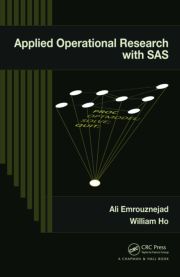Title: Agricultural Productivity, Climate Change and Sustainable Resource Management
Date: October 17-20, 2017,
Location: University of Talca, Chile
The scientific community has accumulated significant evidence and has put forth compelling arguments regarding the impact of climate change on natural and human systems. Several 21st-century global warming projections far exceed the natural variability of the past 1000 years. The evidence also shows that, around the globe, snow and ice melting along with changing precipitation patterns are modifying hydrological systems with detrimental effects on the quantity and quality of water resources. The inherent uncertainties surrounding farming operations have become accentuated by the global warming trend, which has serious direct and indirect impacts on crop production, food prices, food security and land use decisions.
The sensitivity of agricultural productivity to environmental factors, including climatic variability, is an important challenge given the significance of this sector to the economic development of many poor countries. Climate change presents numerous obstacles to farming and a better understanding of how to manage agricultural production in the face of climatic variability will enable the development of effective strategies aimed at coping with this evolving phenomenon. Despite steady technological advancements in agriculture, climate remains a limiting factor in farm production. It is not only dramatic natural hazards, such as droughts and floods, that have adverse consequences on agricultural production, but small changes in climatic conditions can also have substantial impact when farmers are not well equipped to deal with such change.
Rising income and population are expected to put mounting pressure on the agricultural sector to intensify production techniques, and the expansion of irrigation water use to meet rising demands for food and fiber is a prominent option. However, at the same time, the demand for water resources will expand in other sectors of the economy and these factors combined are expected to generate growing water scarcity around the globe. Irrigation water worldwide accounts for approximately 70% of all freshwater withdrawals; hence, increasing water scarcity will undoubtedly put pressure on farming to reduce consumption so that water can be diverted elsewhere. Consequently, the overall pressure on water resources points to the importance of improving the productivity and efficiency of water use in agriculture.
The Food and Agriculture Organization (FAO) of the United Nations warns that climate change will have grave adverse effects on the key dimensions of food security including food availability, food accessibility, food utilization and food system stability. This organization calls for policy actions to safeguard food security in a changing climate by increasing agricultural productivity and avoiding production losses that could result from rising temperature, changing rainfall patterns, and new pests and diseases. In addition, the FAO argues that high priority must be given to sustainable agricultural management practices that enhance adaptation by farmers while contributing to the mitigation of the various causes of climate change.
The aim of this Inter-Conference Symposium is to provide a platform for knowledge exchange, discussion and networking focusing on climate change and sustainability, productivity and resource management and related topics.
Contributions in the following topics are welcome:
- · Climate change adaptation and mitigation strategies
- · Technology adoption, climate change and resource management
- · Sustainable land and water management
- · Farm productivity and irrigation
- · Natural resource management and agricultural sustainability
- · Agricultural trade patterns and climate change
- · Farm size and productivity
- · Economic growth, farm labor supply and productivity
- · Climate change and food security along the value chain
- · Policy options to stimulate sustainable agricultural production
- · Environmentally related policies and natural resource sustainability
IMPORTANT DATES & DEADLINES
- June 1, 2017:
Deadline for submission of full papers - July 1, 2017:
Announcement of accepted presentations - August 15, 2017:
Final registration and fee payment for all authors presenting papers - September 15, 2017:
Final registration and fee payment for all participants
More information: http://www.iaae2017talca.org/















